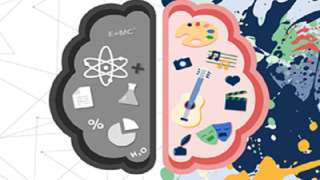MEDIA
Liberal Arts: New Gateway To Success
www.bweducation.businessworld.in | May 8, 2020
In liberal arts degree program, the emphasis is placed on encouraging students to apply, analyze, evaluate, and synthesize available information.
Every year, many Grade 12 Indian students apply to study abroad, especially in the United States (US). The submitted application is a product of more than yearlong rigorous preparation: taking SAT and/or ACT, TOEFL and/or IELTS exams; writing a statement of purpose; enrolling for skill-based courses, participating in extracurricular activities, and ensuring consistently good academic record to build the resume; and so on. This year too, many students secured admission in the prestigious institutes in the US and were excited to start their semester in Fall 2020. However, these students are finding themselves in a tough spot on account of imposed travel restrictions due to the COVID-19 situation. In such a scenario of looming uncertainty, what could be Plan B for these students? Undergraduate (UG) programs offered at private Indian liberal arts institutes!
Indian college/university education is often associated with rote memorization and an outdated curriculum that does not prepare students for 21st-century skills. Many students cite this as one of the most important reasons for applying to universities abroad. However, liberal arts programs offered at private Indian universities are an exception to the rule as training offered at these institutes matches Ivy League standards.
So how different are the UG liberal arts programs from conventional UG programs? Bloom’s (1956) taxonomy can help us understand the difference between the goals of these two programs. Bloom’s taxonomy arranges to learn goals from the simplest to the most challenging ones: knowledge, comprehension, application, analysis, synthesis, evaluation. The traditional education system views student as devoid of information and teacher as a storehouse of information. Hence, conventional bachelor’s programs typically focus on building knowledge and comprehension.
However, internet proliferation in the 21st century has made it possible to have information at one’s fingertips. Consequently, Generation Z has access to a lot more information than the previous generations. A liberal arts curriculum acknowledges these recent developments and tailors its pedagogy accordingly. Thus, in liberal arts degree program, the emphasis is placed on encouraging students to apply, analyze, evaluate, and synthesize available information. This creates fertile grounds for integrative thinking, a term that Roger Martin (2007) stressed upon in his work ‘The opposable mind: How successful leaders win through integrative thinking.’ According to Martin (2007), integrative thinkers are capable of combining ideas from clashing perspectives to develop new insights and find solutions to major sociopolitical, economic, environmental, and health-related concerns. Thus, the power of liberal arts curriculum in creating path-breaking leaders and innovators cannot be underestimated.
In a typical UG liberal arts program, students explore courses from various streams, such as natural sciences, humanities and social sciences, performing arts and business management. They can, for example, choose to major in economics and minor in theatre. One may remark, “Liberal Arts make students ‘Jack of all trades, but master of none.’ Better to stick to a regular degree program that allows us to specialize in one discipline.” However, Richard Riley indicates, “We are currently preparing students for jobs that don’t yet exist … using technologies that haven’t been invented … in order to solve problems we don’t even know are problems yet” (Gunderson, Jones, & Scanland, 2004, p. 506). Interdisciplinarity, rather than disciplinary specialization, will drive the future workspace and provide solutions to the complex prospective problems. A multidisciplinary experience that liberal education provides is very crucial for developing interdisciplinary thinking.
Let me keep philosophy aside for the time being and get more practical. A private Indian liberal arts institutes, students are groomed by stellar professors. A whooping majority of these professors have degrees from reputed international universities, including Ivy League schools. Furthermore, Indian liberal arts institutes have access to the new technology, which significantly enriches the learning process. With respect to securing admission in liberal arts programs, applicants are exempted from writing an entrance exam if they have SAT/ACT scores in hand. All that applicants need to do is write an essay and appear for the personal interview.
Liberal arts curriculum, with a perfect blend of the ‘philosophical’ and the ‘pragmatic,’ will be a game-changer in the days to come. If Shakespeare were to be alive, he would have definitely asserted, “With a liberal arts degree, the world is your oyster.”
-Prof. Ninad Patwardhan, Assistant Professor - Psychology
(Views expressed are personal)
(Source: http://bweducation.businessworld.in/article/Liberal-Arts-New-Gateway-To-Success-/08-05-2020-191553/)

